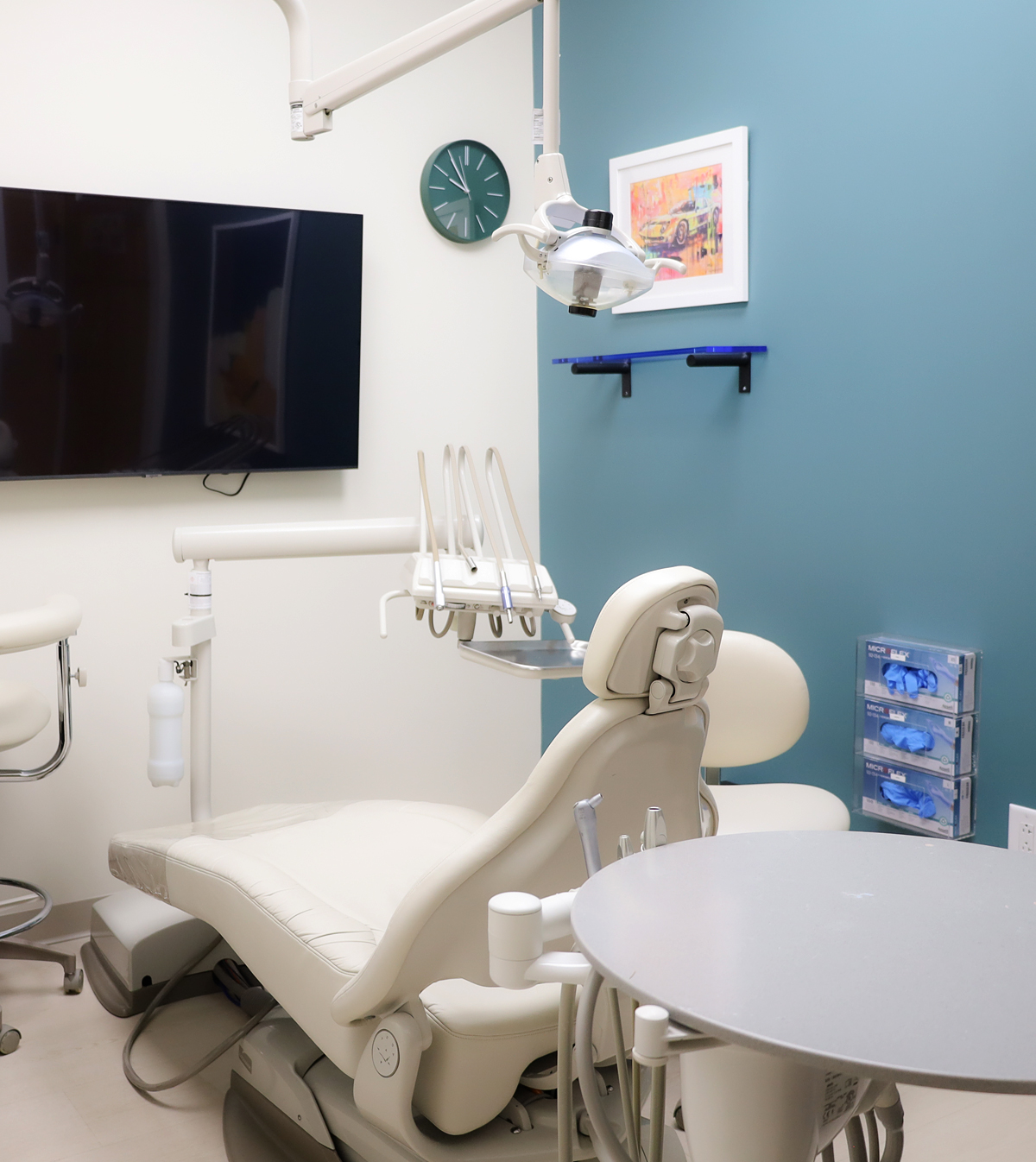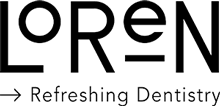Sleep Apnea
What To Expect
Diagnosis & Treatment
If you suspect you may have sleep apnea but have not confirmed the condition, it is important to visit a sleep lab for evaluation.
Sleep Apnea FAQs
We offer our expertise to you for all your dental needs. Please reach out for additional details – we’re here to assist you.
What is Sleep Apnea?
Sleep apnea is a common sleep disorder that affects millions of people in the United States. It occurs when a person stops breathing for short periods of time in their sleep, preventing them from getting enough air. This can lead to continuously waking up throughout the night, resulting in restless sleep.
There are three types of sleep apnea: obstructive sleep apnea, central sleep apnea, and complex sleep apnea.
- Obstructive sleep apnea is the most common form of the condition, and it occurs when the airway becomes blocked during sleep. This can occur as the tissues in the mouth and throat become relaxed and block the airway.
- Central sleep apnea is a much less common type that occurs when the brain fails to send the correct signals to the muscles that control breathing.
- Complex sleep apnea is a combination of obstructive and central sleep apnea. This form of the condition is most often discovered when attempting to treat obstructive sleep apnea; when the condition persists despite treatment of obstruction, other treatment options must be considered.
Sleep apnea can be a very serious condition if left untreated. It can lead to high blood pressure, heart disease, stroke, and diabetes. It can also cause problems with concentration, memory, and mood.
Our Raleigh, NC doctors are here to help! If you have been diagnosed with sleep apnea, we invite you to contact our office today to schedule an appointment; from there, we will provide a treatment option that is most appropriate for you.
Symptoms Of Sleep Apnea
The most common symptoms of sleep apnea are snoring and excessive daytime sleepiness. Other symptoms may include:
- Difficulty staying asleep
- Waking up with a headache
- Morning fatigue
- Difficulty concentrating
- Irritability
- Depression
- Weight gain
Risk Factors
There are several risk factors for developing sleep apnea that may increase a person’s chances for developing the condition; this includes the following:
- Obesity – People who are overweight are more likely to develop sleep apnea because of the extra soft tissue in the throat that can obstruct breathing.
- Age – Sleep apnea becomes more common as people get older.
- Gender – Men are more likely to develop sleep apnea than women due to differences in the shape of the upper airway.
- Family history – Sleep apnea may be more common in people who have a family history of the condition.
- Nasal problems – People with nasal problems, such as a deviated septum, are more likely to develop sleep apnea.
If you are concerned that you may be at risk for developing sleep apnea, talk to your primary care physician about receiving a referral for evaluation. From there, you will be able to obtain the insight necessary to make an informed decision toward improving your health and regaining the quality of sleep you deserve.
What is the Diagnosis & Treatment for Sleep Apnea?
If you suspect you may have sleep apnea but have not confirmed the condition, it is important to visit a sleep lab for evaluation. Treatment from our care team can only be initiated after an appropriate diagnosis has been made.
Treatment options vary depending on the type of sleep apnea, but may include devices to help keep the airway open during sleep, breathing assistance machines, or surgery. With treatment, many people who have sleep apnea can experience improved sleep and better health overall.
A dental exam is a crucial part of maintaining good oral health. During the exam, your dentist will thoroughly assess your teeth and gums to identify any potential issues. Our Raleigh office is equipped to address all your dental needs.
- Early detection of problems: Regular exams allow your dentist to identify and address potential issues early on, which can prevent more serious problems and costly treatments later.
- Maintaining oral health: Regular cleanings and professional guidance on oral hygiene can help you maintain healthy teeth and gums.
- Preventing serious health issues: Some studies suggest a link between poor oral health and certain systemic diseases, such as heart disease and diabetes.
For more information on the importance of dental exams, you can visit the following resources:
- The American Dental Association (ADA):
https://www.ada.org/ - The Centers for Disease Control and Prevention (CDC):
https://www.cdc.gov/oral-health/index.html


Confidence Looks Good on You
Picture this: You leave work and stroll through downtown Raleigh, heading to your self-care cleaning appointment. A cozy seat in our stylish lobby and a complimentary beverage are ready for you. Soon, you’re escorted to one of our designer Studios for your personalized appointment. Before you know it, you’re walking out with a chic tote of handpicked dental care products. Welcome to modern dentistry, where your spa-like experience awaits.
